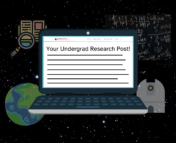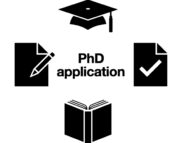Disclaimers
- The National Osterbrock Leadership Program (NOLP) is funded by the AAS; Astrobites is also funded by the AAS.
- The author of this Astrobite article, Jack Lubin, is a former Fellow of the NOLP and still currently active with the program. Furthermore, he led the NOLP’s effort to write and produce the white paper which this Astrobite article is reporting on. His sole intention for writing this Astrobite article is to help spread the word of the existence of the NOLP’s white paper, in hopes that it will reach a broader audience.
Background
The National Osterbrock Leadership Program (NOLP), originally started at UC Santa Cruz in 2016, trains astronomy grad students in both science and leadership skills. Funded by the AAS and managed by senior professors, the NOLP has now grown to 3 “nodes”: UC Santa Cruz, UC Irvine, and Columbia University. Each node has 5-8 Fellows in a given year, but the impact of the program goes far beyond the Fellows. NOLP challenges and supports its Fellows through a variety of activities that build skills in decision-making, team building, communication, conflict resolution, and budget management. More specific information on the NOLP and its Fellows is given on their website: https://aas.org/nolp.
Astrobites Report
The Fellows of the NOLP have recently put out a white paper titled “Reimagining the Astro PhD for the 21st Century”. In this white paper, they lay out a vision for how astronomy departments can better support, empower, and train their graduate students for life and work beyond school. This vision is in large part drawn from the experiences of Fellows within the NOLP and the positive ways in which those experiences have helped the Fellows learn and gain the kinds of skills that will serve them in any career beyond grad school. The ideas behind this white paper were discussed at large with the community at a NOLP hosted splinter session at the 241st AAS Meeting in Seattle, in January 2023. Astrobites covered the lead up to this splinter session and profiled the NOLP in this previous post. In today’s Astrobites Beyond post, we will provide a summary of the NOLP white paper.
The Fellows begin by re-iterating a long known fact that the majority of people who complete a PhD in astronomy will not continue to a career in astronomy. They argue this is not a bad thing at all, pointing out that the hard skills that one learns from earning a PhD in astronomy, namely things like software development and statistical methods, are highly valuable in today’s modern economy. Astronomy PhD holders are highly sought after and well-compensated workers in many different fields beyond academia. But, they argue that one thing that current PhD programs are lacking is directly teaching their students the many soft skills that are equally valuable in a career, regardless of the field. These include skills that broadly fall under the umbrella of leadership: managing time, managing teams, managing projects, communication, conflict resolution, budget balancing, and so much more. They conclude their motivation by calling for a greater adoption of formalized education of leadership skills within astronomy graduate education programs.
Next, the Fellows describe how the NOLP has empowered them to learn and hone these leadership skills. Each node has a slightly different approach and programming. First, the UCSC node runs a “mini-grant” program (their website here). Fellows (and non-Fellows at UCSC) can apply for up to $2000 per year in support to implement a program or initiative of their own design. Through the idea, design, proposal, and subsequent implementation of their plan, Fellows get real-world experience in many different leadership skills. For example, one Fellow started a program that helps UCSC undergraduate students from under-represented backgrounds learn all about the process of applying to graduate school (any kind of grad school, not just astronomy). Through this program, undergrads are matched with graduate student mentors who help them with their application and the program provides monetary support to cover costs like application fees. This program has been rewarding on many levels, for the undergrads, the mentors, the Fellow, and the community. In addition to the mini-grants, UCSC Fellows have had opportunities to sit in on observatory Time Allocation Committees (TACs) to see behind the scenes of how observing proposals get awarded time, plus they’ve met leaders in many fields, including the director of Space Telescope Science Institute and the Mayor of Santa Cruz, to discuss leadership in the real world.
Next, the Columbia University Fellows run a similar mini-grant program but lean heavily into their New York City neighborhoods (their website here). Fellows there have created an outreach program to bring astronomy to a local children’s cancer hospital. Another organized a lecture series titled “Science Policy for Scientists” where they brought in speakers from all around the city and opened the doors to everyone at the university. A third developed a coding summer camp for local under-represented children. They have also incorporated professors from the Columbia Business School to put on seminars on leadership.
Lastly, the UC Irvine node runs a bit differently. There, Fellows lead, manage, and operate the Physics and Astronomy Community Excellence (PACE) program (their website here). Originally founded by and for phys/astro grad students, PACE runs multiple streams of programming, all centered around helping new grad students acclimate to grad school. The Fellows organize a peer-mentoring program, matching new students to more experienced ones and encouraging the pairs to meet up and discuss life in grad school. Similarly, PACE sets out to “teach the things that no one teaches you” through a workshop series where the Fellows (and the mentors) lead sessions like “what to look for in a potential advisor”, “how to build your mentor map”, “how funding works”, and more. Through running PACE, the NOLP Fellows gain invaluable experience of leading a program.
The white paper ends with a list of action items that professors, department heads, and deans can implement to help their grad programs actively teach these kinds of leadership skills alongside the important research skills. These action items were drawn heavily from the NOLP program activities. They include four key points, quoted here:
- Create and define positions within the department governance that are specifically for graduate students. These should be official roles within the department. These positions are intended to provide students with genuine ownership of a program/idea through which they are empowered to learn skills associated with project, team, and time management, communication and preparation, and general leadership.
- Develop, actively manage, and fund a peer mentoring program among the graduate students, like the PACE program at UCI. Peer mentorship has been shown to foster community, as well as increase the rate at which students participate in department activities and programs. That participation naturally leads to taking on leadership roles within programs, which in turn develops the leadership skills that are so important to success beyond grad school. But additionally, the role of a peer mentorship program leader can and should be a current grad student(s) who can in turn sharpen their own leadership skills through the management of the program.
- Allocate funds to develop a mini-grant program similar to the ones hosted at UCSC and Columbia nodes.
- Actively support and promote non-academic paths to students. Through exposure to alternative paths, students are empowered with information to pursue the areas that are most interesting to them and imagine the ways in which their astronomy skills can be applied beyond academia.
How to get involved
First, you can read the white paper in full at this link: https://aas.org/sites/default/files/2023-10/NOLP-Whitepaper.pdf
If you are a current graduate student, read the white paper and think about how your department supports leadership development and opportunities for gaining leadership experience. Talk to your fellow cohorts about these ideas. Consider sending the white paper to one of your professors and/or department leaders, and try talking to them about how the department could implement some of these ideas.
If you are an aspiring or applying graduate student, read the white paper and ask professors at your prospective institutions what their departments are doing to support leadership opportunities and experience. Talk to the grad students, too.
If you are a professor or department head, read the white paper and talk to your colleagues about these ideas. Ask yourselves if there are more or better ways your department can support grad students in leadership opportunities.
Lastly, if you are interested in learning more about the NOLP, or talking to the NOLP program managers, look through their website and consider reaching out. The NOLP is actively looking to expand.
Astrobite edited by Sahil Hegde, Ali Crisp, Archana Aravindan
Featured image credit: NOLP




